Earning a college diploma doesn’t just mean a student has become an expert in a specific field. It also means they’ve learned good study habits, developed self-discipline, and figured out how to navigate a complicated bureaucratic landscape. Case in point: the simple task of getting transcripts delivered from one institution to another.
Now, Sony is looking to make managing education records easier by using blockchain technology, the same revolutionary concept behind Bitcoin. The tech giant has developed a new digital system for storing and managing education records that not only keeps them safe but also makes it easier for them to be accessed by third parties.
For those unfamiliar with blockchain, it’s a database or a “digital ledger” located on a chain of computers. Before a change to the data or a transaction (in the case of Bitcoin) can be recorded, the entire chain of computers must give their approval. This helps reduce fraud because everything on the ledger is available to everyone — and every computer — on the blockchain to see.
Sony’s new platform will give students a digital transcript — including degrees, diplomas, tests, and athletic records — which will be accessible through the blockchain. This will prevent fraud while making it easier for potential employers and academic institutions to access these documents. Currently, this type of information is stored as physical copies at individual institutions, making it difficult for them to be accessed and easy to be forged.
The big win for students: less time wasted in line at the administration building waiting for their transcripts.
After this new information system is up and running, Sony hopes to use artificial intelligence to analyze the data to help schools improve their curriculum and management. Sony is also looking to bring the same blockchain technology to other arenas, including real estate, logistics, and proprietary digital content.


















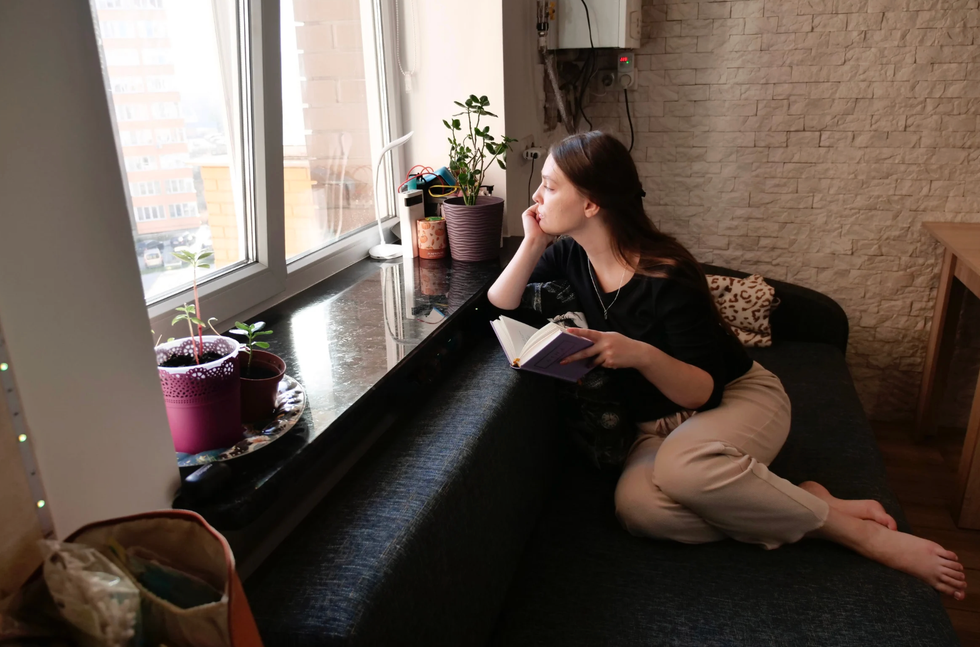 A woman relaxes with a book at homeCanva
A woman relaxes with a book at homeCanva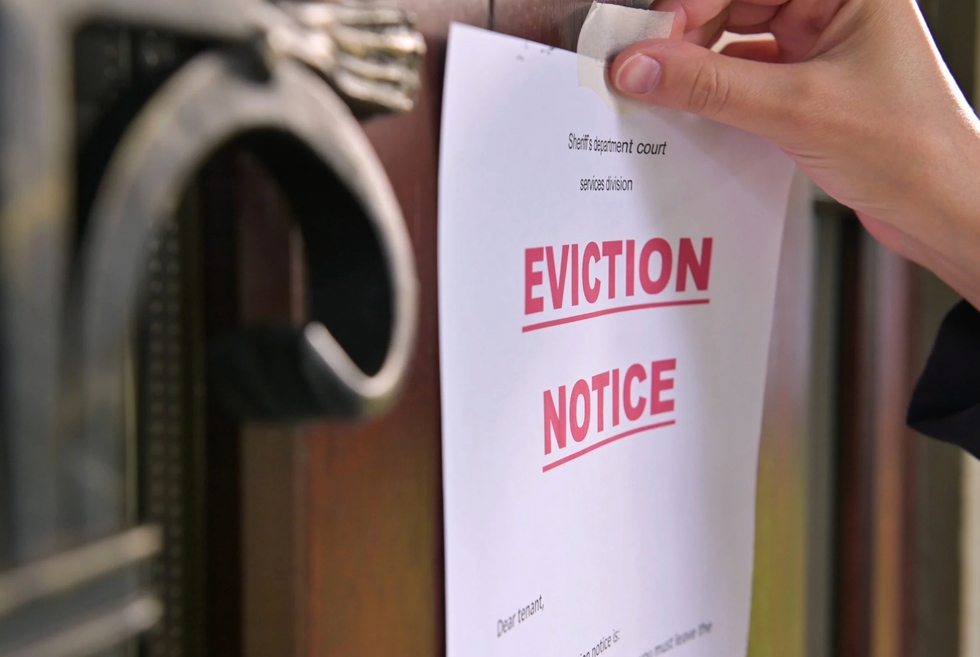 An eviction notice is being attached to a doorCanva
An eviction notice is being attached to a doorCanva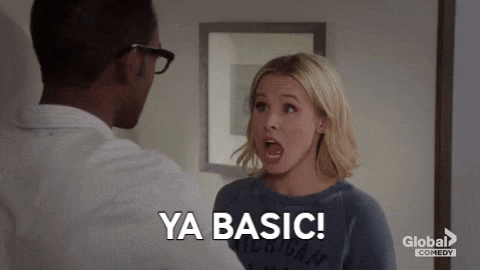 Gif of Kristen Bell saying 'Ya basic!' via
Gif of Kristen Bell saying 'Ya basic!' via 
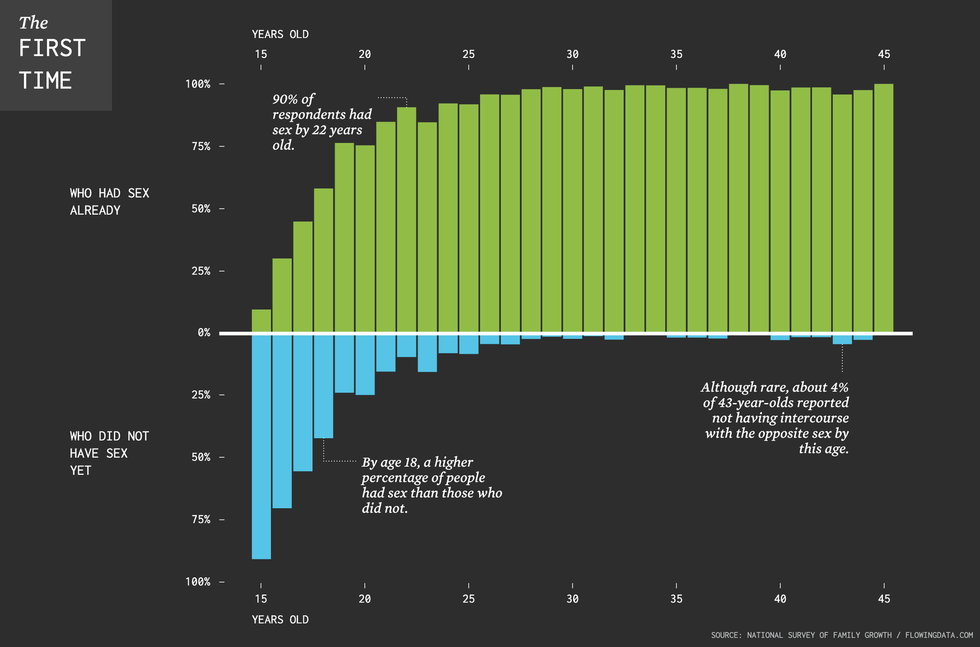 The chart illustrates that between ages 16 and 20, roughly half the population loses their virginity. By age 22, 90% of the population has had sex.
The chart illustrates that between ages 16 and 20, roughly half the population loses their virginity. By age 22, 90% of the population has had sex. A group of young people hold their phonesCanva
A group of young people hold their phonesCanva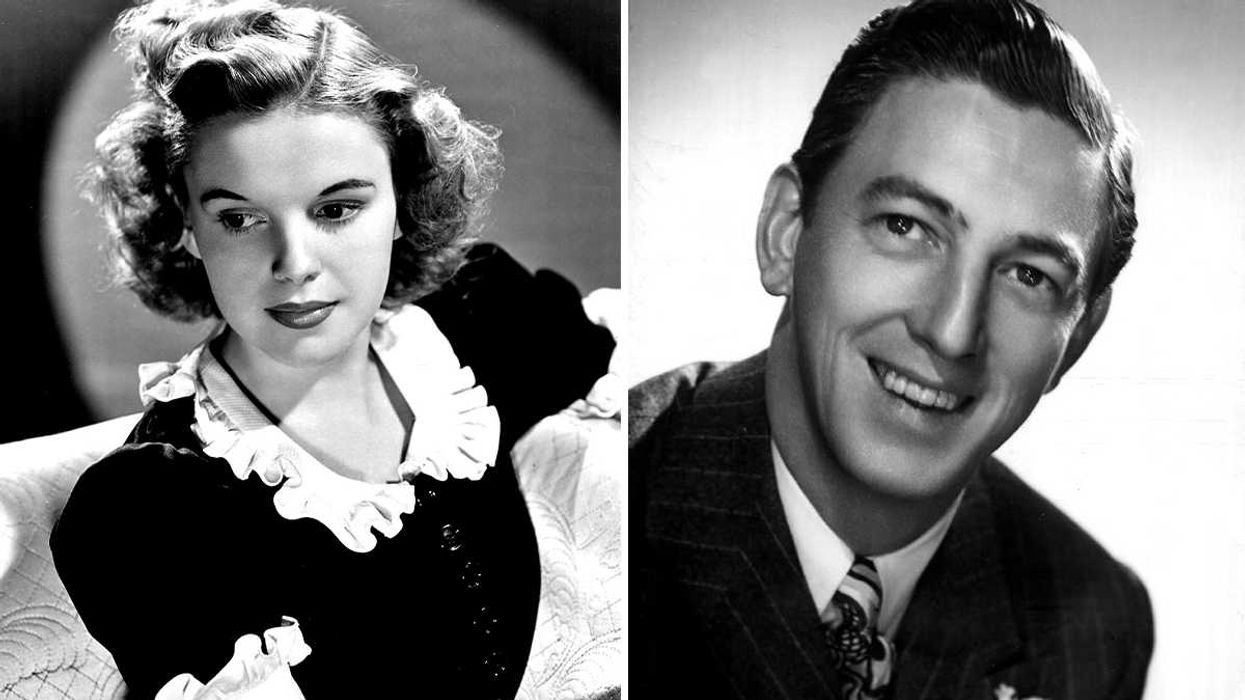
 (LEFT) Judy Garland as Dorothy Gale and (RIGHT) Ray Bolger as Scarecrow from "The Wizard of OZ"CBS/
(LEFT) Judy Garland as Dorothy Gale and (RIGHT) Ray Bolger as Scarecrow from "The Wizard of OZ"CBS/ 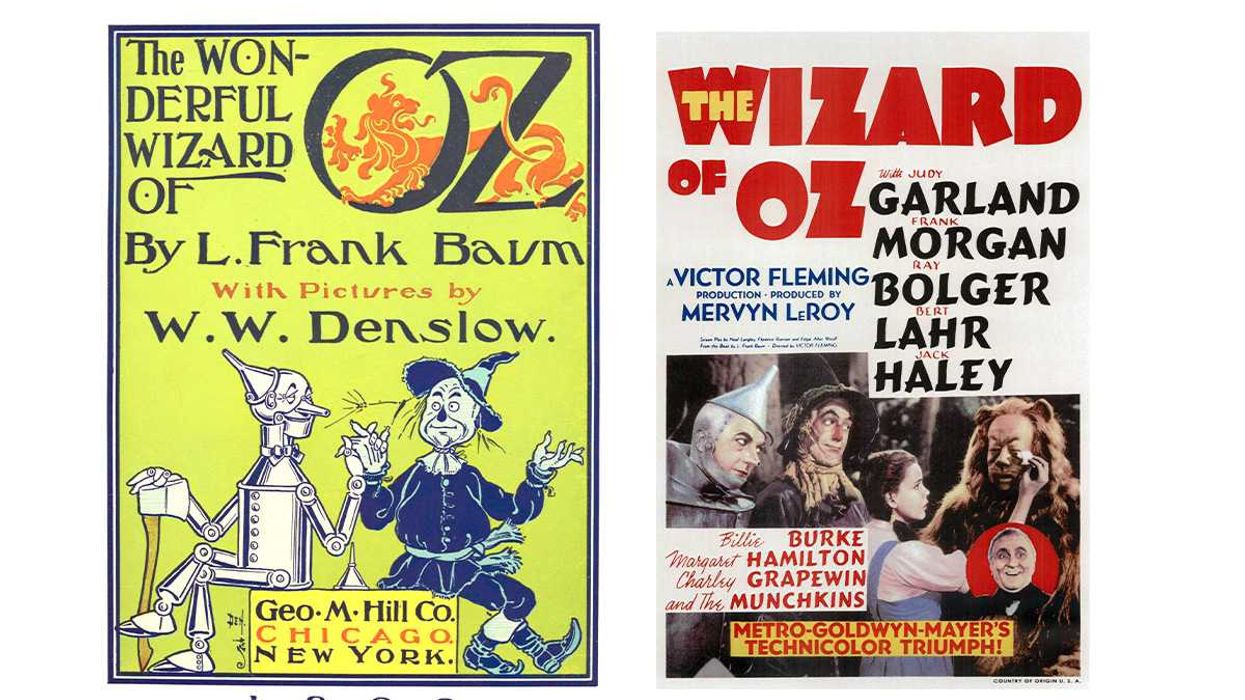 (LEFT) The Wonderful Wizard of Oz children's novel and (RIGHT) The Wizard of Oz movie poster.William Wallace Denslow/
(LEFT) The Wonderful Wizard of Oz children's novel and (RIGHT) The Wizard of Oz movie poster.William Wallace Denslow/ 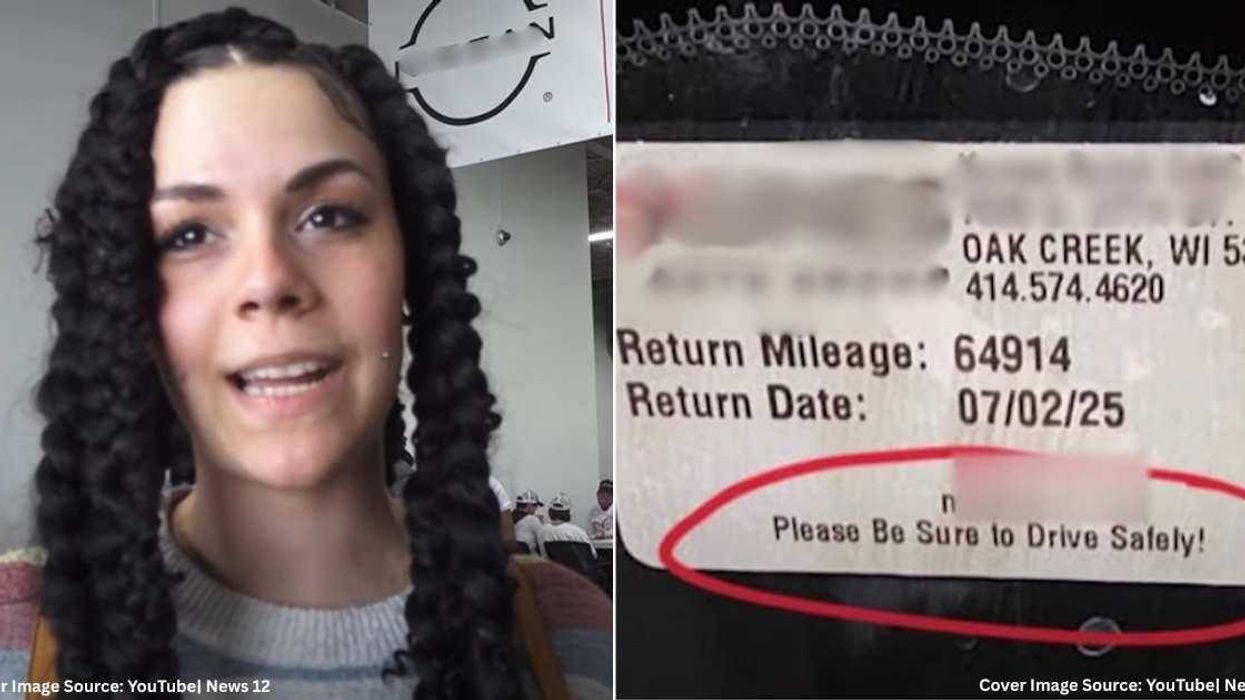
 A frustrated woman at a car dealershipCanva
A frustrated woman at a car dealershipCanva Bee Arthur gif asking "What do you want from me?" via
Bee Arthur gif asking "What do you want from me?" via 
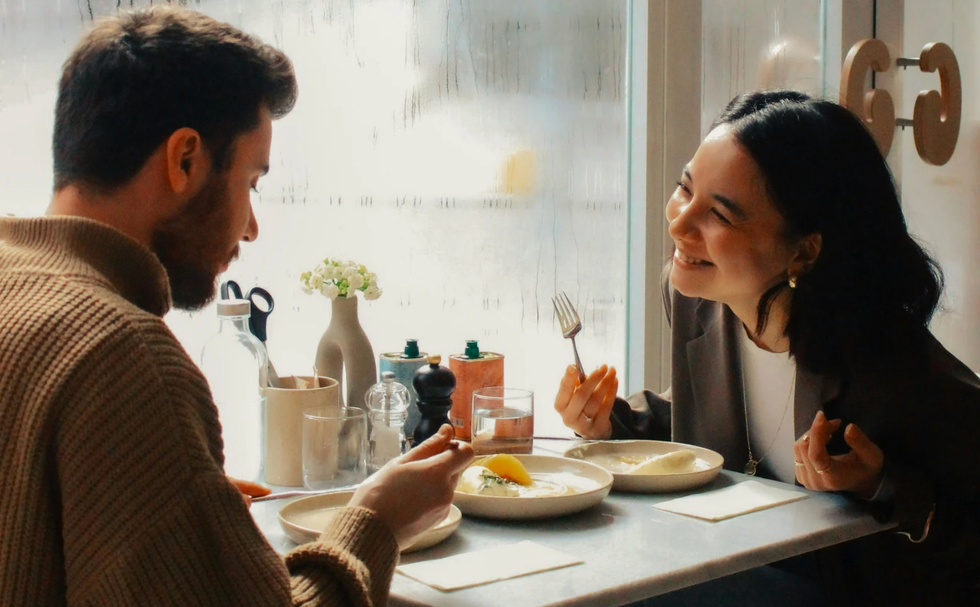 A couple on a lunch dateCanva
A couple on a lunch dateCanva Gif of Obama saying "Man, that's shady" via
Gif of Obama saying "Man, that's shady" via 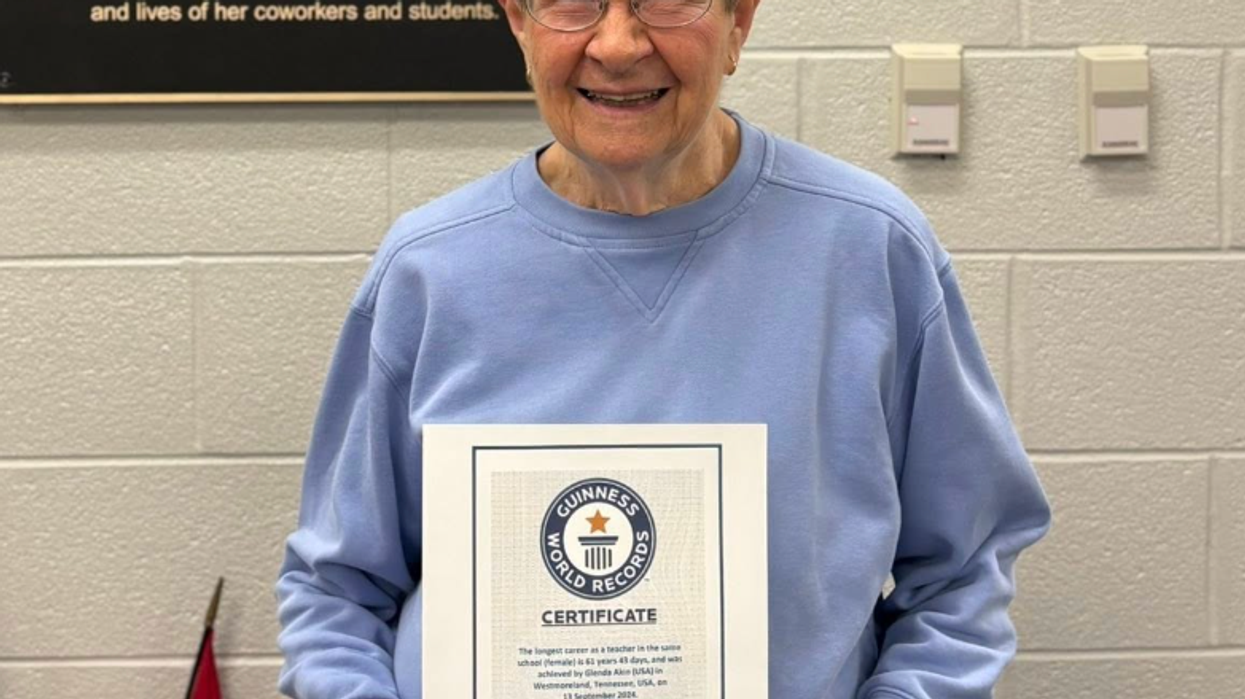
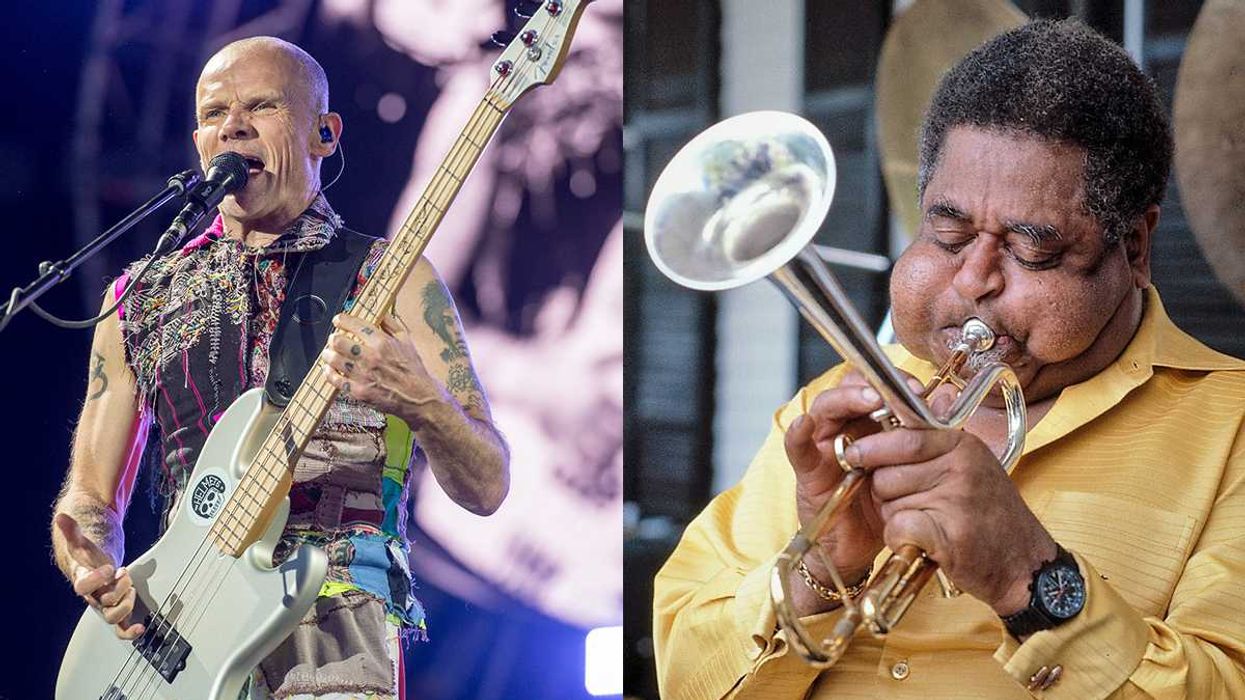
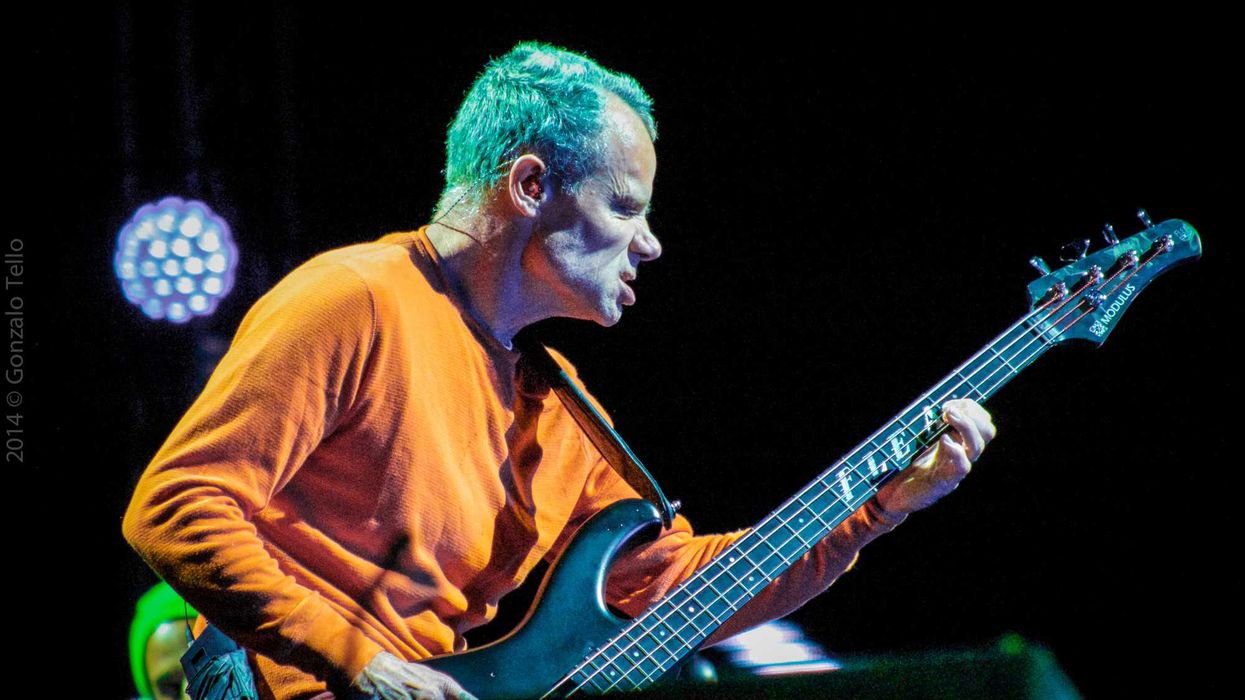 Red Hot Chili Peppers bassist Flea at Lollapalooza Chile in 2014.Cancha General/
Red Hot Chili Peppers bassist Flea at Lollapalooza Chile in 2014.Cancha General/  Red Hot Chili Peppers bassist Flea at Rock in Rio Madrid in 2012.Carlos Delgado/
Red Hot Chili Peppers bassist Flea at Rock in Rio Madrid in 2012.Carlos Delgado/